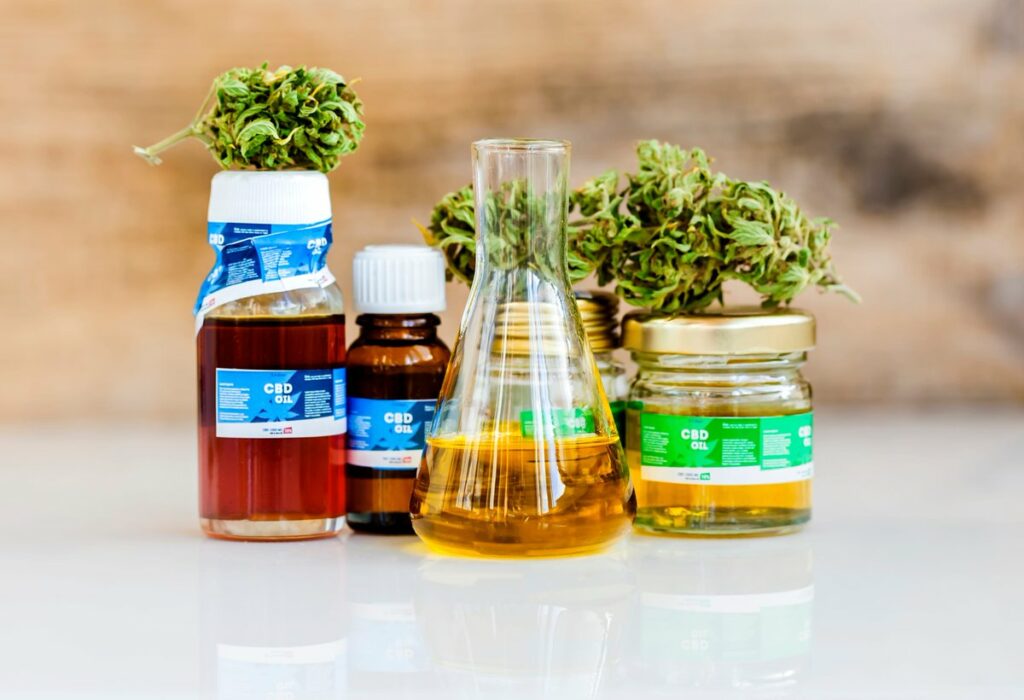Introduction
Post-Traumatic Stress Disorder (PTSD) is a complex mental health condition that affects individuals who have experienced or witnessed traumatic events. It is characterized by symptoms such as intrusive thoughts, nightmares, flashbacks, hypervigilance, and emotional distress. While traditional treatment options for PTSD exist, there is growing interest in exploring alternative therapies, such as CBD (cannabidiol). This comprehensive guide aims to provide valuable insights into the potential of CBD as a treatment for PTSD. From understanding PTSD and its underlying mechanisms to exploring the current research on CBD, this guide will delve into the topic to help shed light on its potential benefits.
Table of Contents
- Introduction
- Understanding PTSD: Causes, Symptoms, and Challenges
- The Endocannabinoid System and CBD
- CBD’s Potential Mechanisms of Action in PTSD
- Preclinical and Clinical Studies on CBD for PTSD
- CBD for PTSD-Related Anxiety and Fear Responses
- CBD for Sleep Disturbances in PTSD
- CBD for Emotional Regulation and Stress Reduction
- CBD Dosage and Administration for PTSD
- Potential Side Effects and Safety Considerations
- The Importance of Research and Future Directions
- Conclusion
Introduction
The introduction provides an overview of PTSD, its prevalence, and the challenges faced by individuals living with this condition. It also introduces CBD as a potential treatment option and outlines the topics covered in the guide.
Understanding PTSD: Causes, Symptoms, and Challenges
This section delves into the causes, risk factors, and symptoms of PTSD. It explores the challenges faced by individuals with PTSD, including the impact on daily functioning, relationships, and overall quality of life.
The Endocannabinoid System and CBD
To understand CBD’s potential role in PTSD, it is essential to comprehend the endocannabinoid system (ECS). This section explains the ECS and its involvement in regulating various physiological processes, including mood, stress responses, and memory.
: CBD’s Potential Mechanisms of Action in PTSD
This section explores the potential mechanisms by which CBD may exert its effects in PTSD. It discusses CBD’s interaction with cannabinoid receptors, serotonin receptors, and its influence on the modulation of neurotransmitters involved in fear, anxiety, and stress responses.
Preclinical and Clinical Studies on CBD for PTSD
This section provides an overview of preclinical animal studies and clinical trials that have investigated the effects of CBD in individuals with PTSD. It examines the findings, limitations, and implications of these studies.
CBD for PTSD-Related Anxiety and Fear Responses
Anxiety and fear are core symptoms of PTSD. This section focuses on CBD’s potential to alleviate anxiety and fear responses in individuals with PTSD. It explores the research on CBD’s anxiolytic properties and its effects on fear extinction and memory consolidation.
CBD for Sleep Disturbances in PTSD
Sleep disturbances, including nightmares and insomnia, are common in PTSD. This section discusses the potential of CBD in improving sleep quality and reducing sleep disturbances associated with PTSD. It examines the research on CBD’s influence on sleep architecture and its interaction with the sleep-wake cycle.
CBD for Emotional Regulation and Stress Reduction
PTSD often involves difficulties in emotional regulation and heightened stress responses. This section explores CBD’s potential to modulate emotional responses and reduce stress in individuals with PTSD. It examines the research on CBD’s effects on emotional processing, fear conditioning, and stress-related neurochemical pathways.
CBD Dosage and Administration for PTSD
Determining the appropriate CBD dosage and administration method is important for optimal outcomes in individuals with PTSD. This section provides guidance on finding the right dosage based on factors such as body weight, symptom severity, and individual response. It also discusses different administration methods, including sublingual tinctures, capsules, and topical applications.
Potential Side Effects and Safety Considerations
CBD is generally well-tolerated, but it is important to be aware of potential side effects and safety considerations. This section discusses common side effects of CBD, potential drug interactions, and considerations for special populations, such as pregnant or breastfeeding individuals.
The Importance of Research and Future Directions
While preliminary research on CBD for PTSD shows promise, further studies are needed to establish its efficacy, safety, and long-term effects. This section highlights the importance of ongoing research and the need for well-designed clinical trials to validate CBD’s potential as a treatment for PTSD.
Conclusion
The conclusion summarizes the key points discussed throughout the guide. It acknowledges the potential of CBD as a treatment option for individuals with PTSD but emphasizes the need for further research and a multidisciplinary approach to PTSD management. It encourages individuals to consult with healthcare professionals to make informed decisions regarding CBD as part of a comprehensive treatment plan.
Note: It is important to consult with healthcare professionals and seek medical advice before starting any new treatment, including CBD, for PTSD.

